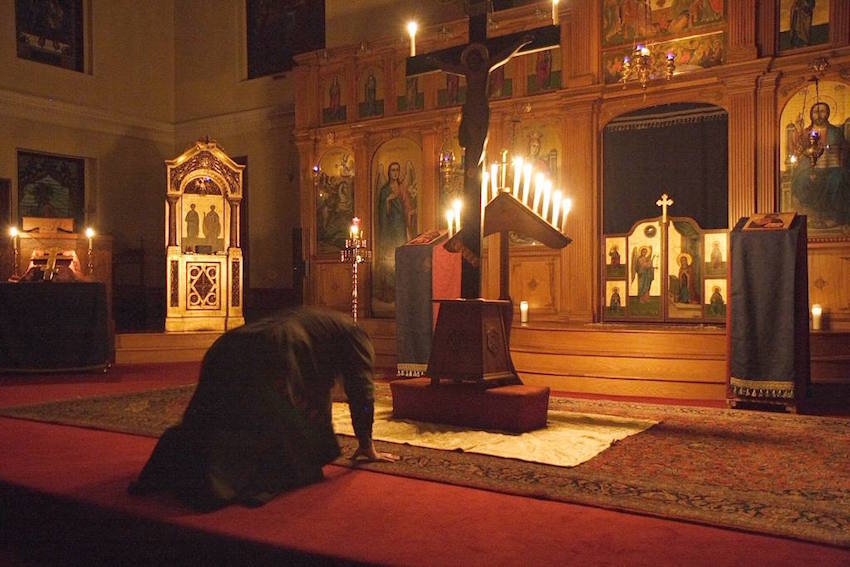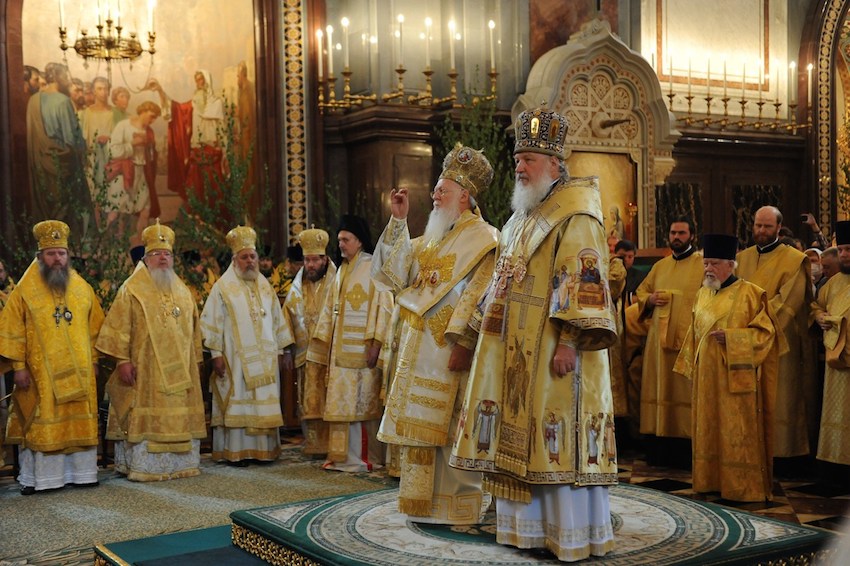Sunday School: Repentance
“Blessed are the pure in heart for they shall see God.” – Matthew 5:8
“Every Christian feels a natural yearning of the heart towards God, a true desire to taste the sweetness of communion, of being with Him as He created us to be: but the impurity of our hearts – full of passions conflicts, and fear bars the way. Yet, there is a cure for the weight of sin which burdens the heart and soul of each of us and afflicts the conscience, keeping us from inner peace and from peace with our neighbors and loved ones.”
In the Holy season of Great Lent we contemplate the mystery of repentance. But what does it mean to be repentant? In the overly intellectual modern age we tend to focus on how we have violated moral laws either through action or inaction. Repentance is much more than a passing feeling of sorrow for wrongs done which, upon reflection can easily overwhelm us and lead to despair. It is a turning away from focusing on worldly matters to those of God. It is a new outlook, a new, correct spiritual direction which we should strive to live at all times, not just during this special season.
According to Saint Gregory Palamas, “Repentance, is to hate sin and love virtue, to reject evil and to do good.” But how do we reach this state? Why should we even strive for repentance? Should we as some modern people say, let go of the guilt and just do good? It may be helpful to reflect on our fallen state as humans to light the way.

 What path will you choose? How will you live out a meaningful life? Who wants to be a failure?
What path will you choose? How will you live out a meaningful life? Who wants to be a failure? Have you accepted the modern two story world narrative as your own? What story are you living in?
Have you accepted the modern two story world narrative as your own? What story are you living in?


 So today is the last day of my sabbatical and tomorrow I’ll be back to work..but I also have Matins to sing…
So today is the last day of my sabbatical and tomorrow I’ll be back to work..but I also have Matins to sing…
 As you may well know, I’ve been working through a long list of books during my sabbatical. I recently finished one of them,
As you may well know, I’ve been working through a long list of books during my sabbatical. I recently finished one of them,